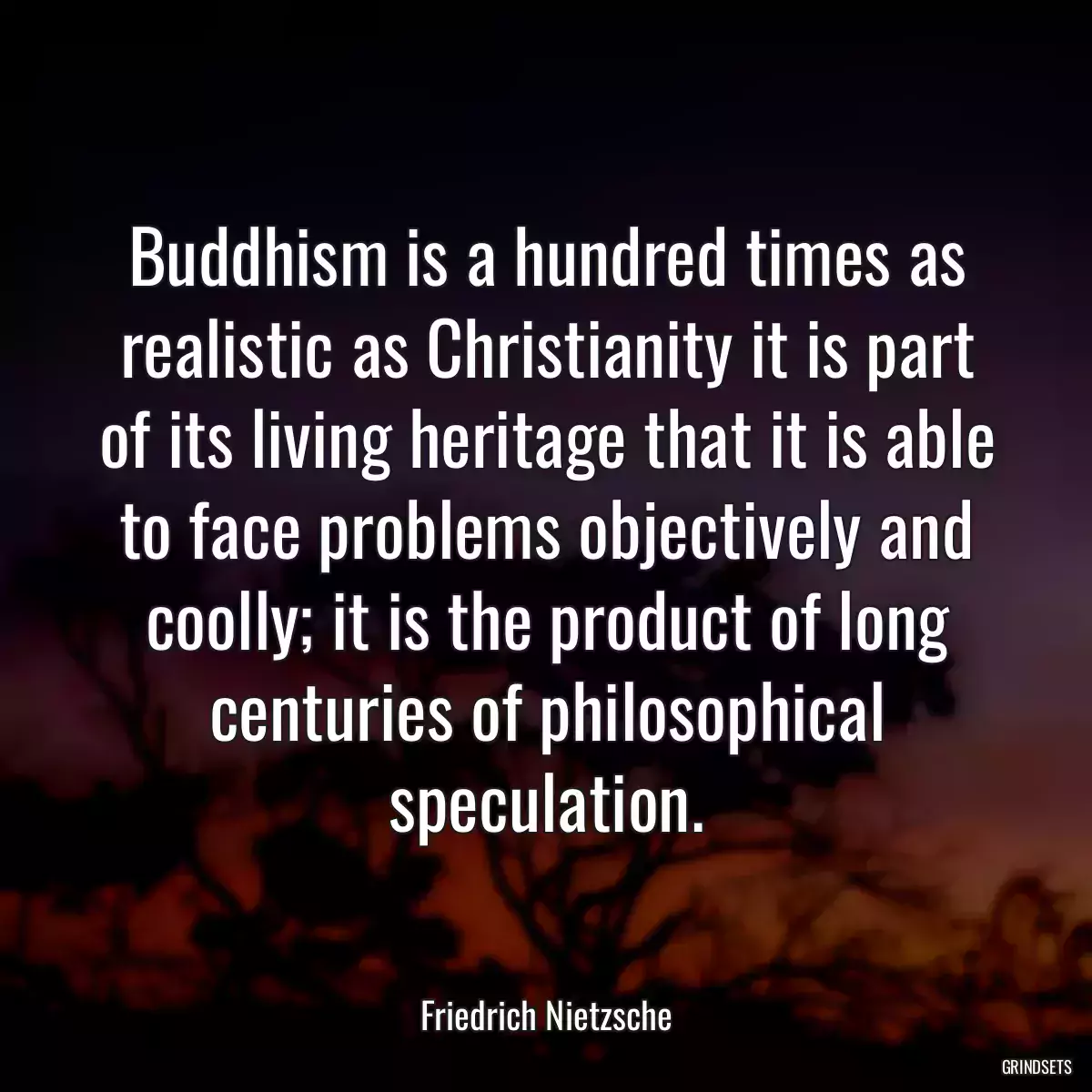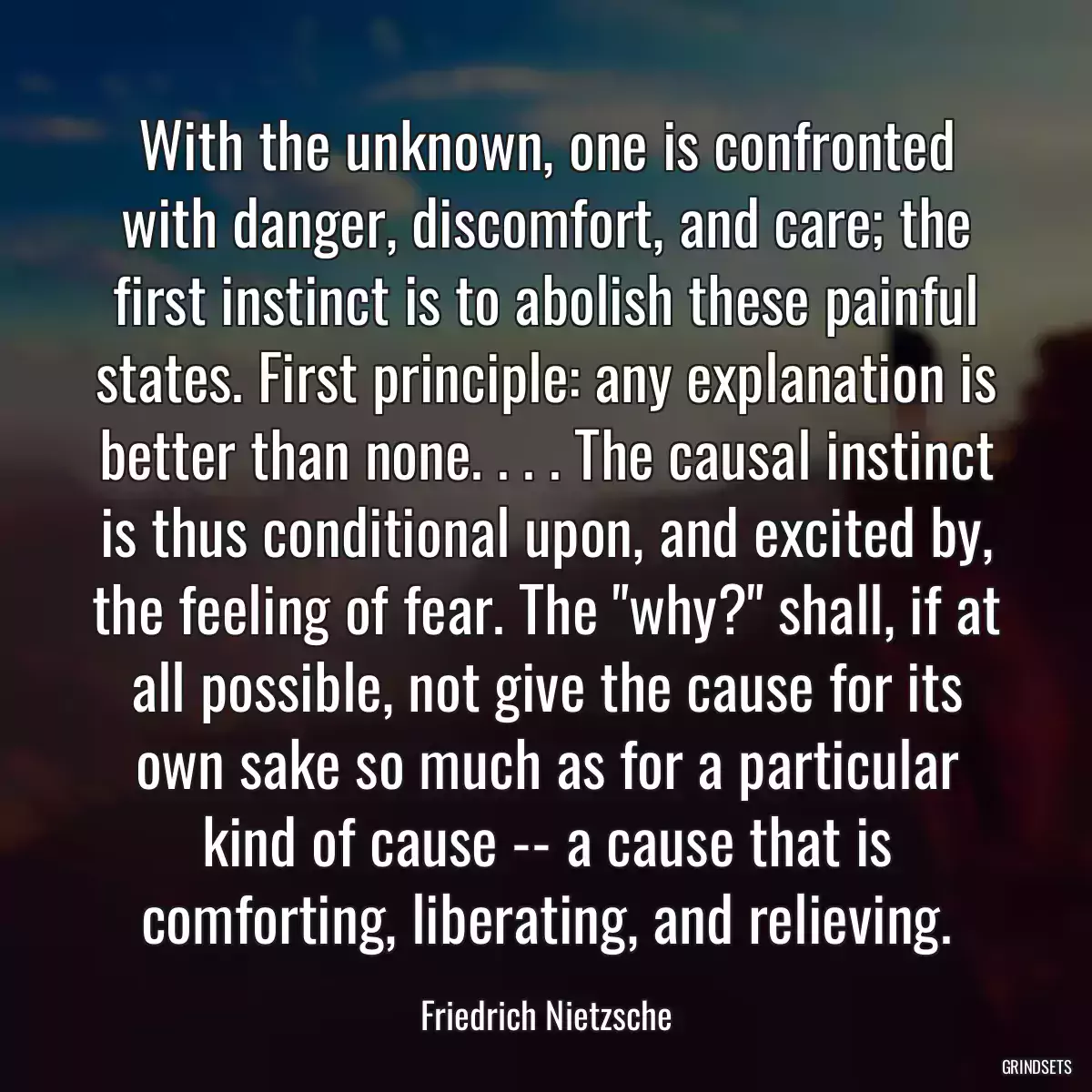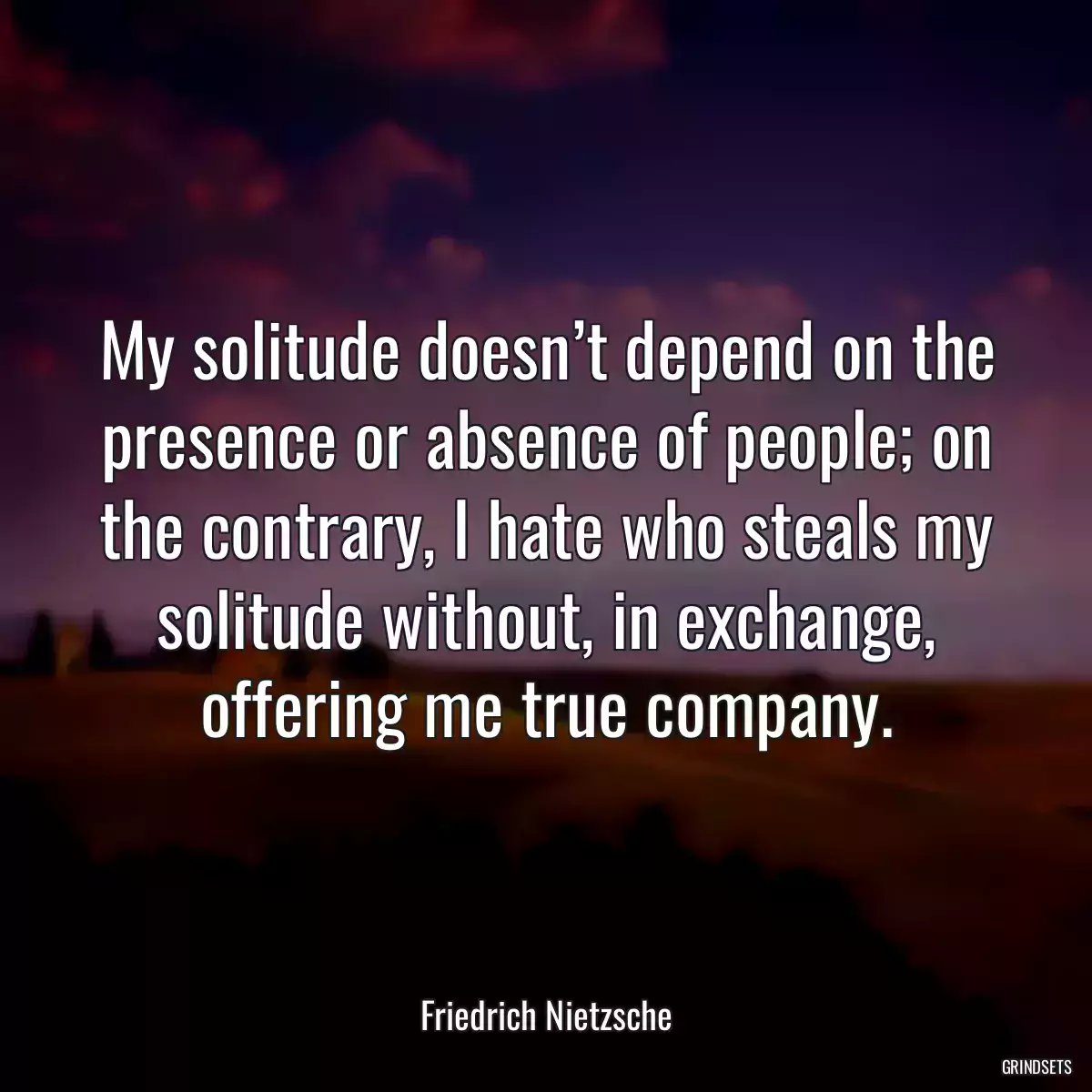
Quotes Friedrich Nietzsche - page 5
Find dozens of Friedrich Nietzsche with images to copy and share.

Faith, indeed, has up to the present not been able to move real mountains, although I do not know who assumed that it could. But it can put mountains where there are none.
Whereas the man of action binds his life to reason and its concepts so that he will not be swept away and lost, the scientific investigator builds his hut right next to the tower of science so that he will be able to work on it and to find shelter for himself beneath those bulwarks which presently exist.
The followers of a great man often put their eyes out, so that they may be the better able to sing his praise.
You may also like
When marrying, ask yourself this question: Do you believe that you will be able to converse well with this person into your old age? Everything else in marriage is transitory.
On the mountains of truth you can never climb in vain: either you will reach a point higher up today, or you will be training your powers so that you will be able to climb higher tomorrow.
Do whatever you will, but first be such as are able to will.
Dancing in all its forms cannot be excluded from the curriculum of all noble education; dancing with the feet, with ideas, with words, and, need I add that one must also be able to dance with the pen?
When death brings at last the desired forgetfulness, it abolishes life and being together, and sets the seal on the knowledge that "being" is merely a continual "has been," a thing that lives by denying and destroying and contradicting itself.

With the unknown, one is confronted with danger, discomfort, and care; the first instinct is to abolish these painful states. First principle: any explanation is better than none. . . . The causal instinct is thus conditional upon, and excited by, the feeling of fear. The "why?" shall, if at all possible, not give the cause for its own sake so much as for a particular kind of cause -- a cause that is comforting, liberating, and relieving.
To regard states of distress in general as an objection, as something which must be abolished is the greatest nonsense on earth; having the most disastrous consequences, fatally stupid- almost as stupid as a wish to abolish bad weather - out of pity for the poor.
What is wanted - whether this is admitted or not - is nothing less than a fundamental remolding, indeed weakening and abolition of the individual: one never tires of enumerating and indicating all that is evil and inimical, prodigal, costly, extravagant in the form individual existence has assumed hitherto, one hopes to manage more cheaply, more safely, more equitably, more uniformly if there exist only large bodies and their members.
Hold a true friend with both your hands.
At bottom every man knows well enough that he is a unique being, only once on this earth; and by no extraordinary chance will such a marvelously picturesque piece of diversity in unity as he is, ever be put together a second time.
We must beware of one who is in a passion against us as of one who has once sought our life; for the fact that we still live is due to the absence of power to kill, - if looks could kill, we should have been dead long ago.
Every characteristic absence of spirituality, every piece of common vulgarity, is due to an inability to resist a stimulus - you have to react, you follow every impulse.
He who rejoices even at the stake triumphs not over pain but over the absence of pain where he had anticipated feeling it. A parable.
We do not place especial value on the possession of a virtue until we notice its total absence in our opponent.
You may also like

There are no eternal facts, as there are no absolute truths.